Stress vs strain graphs for two different wires \(A\) and \(B\) are given. If \(Y_A\) and \(Y_B\) are Young's moduli of the materials, then:

1. \(Y_{A}=\sqrt{3} Y_{B} \)
2. \( \sqrt{3} Y_{A}=Y_{B} \)
3. \(Y_{A}=3 Y_{B} \)
4. \( 3 Y_{A}=Y_{B} \)

1. \(Y_{A}=\sqrt{3} Y_{B} \)
2. \( \sqrt{3} Y_{A}=Y_{B} \)
3. \(Y_{A}=3 Y_{B} \)
4. \( 3 Y_{A}=Y_{B} \)
Hooke's Law is obeyed within:
(1) Elastic limit
(2) Proportionality limit
(3) Breaking point
(4) Freezing point
The length of a wire is 2.01 m when 5 kg is hanging from it and 2.02 m when 10 kg is hanging, then the natural length of wire is:
(1) 2 m
(2) 1.95 m
(3) 1.9 m
(4) 2.005 m
Elongation in the wire of length L and Young's modulus of Y when blocks of weight W each are hung as shown below-
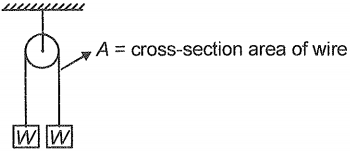
1.
2.
3.
4.
A uniform rod suspended from the ceiling gets elongated by its weight. Which one of the following graphs represents the variation of elongation with length, \(L\)?
| 1. |  |
2. |  |
| 3. |  |
4. |  |
The diagrams represent the potential energy U as a function of interatomic separation r. Which of the following diagrams corresponds to stable molecules found in nature?
1. 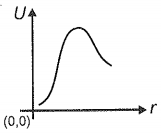
2. 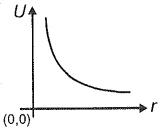
3. 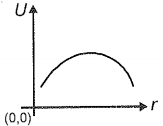
4. 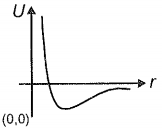
The maximum load that a wire can bear is W. If the wire is cut to half of its length, then the maximum load it can sustain is:
1.
2.
3.
4. W
Two wires \(X\) and \(Y\) of the same length are made of the same material. The figure represents the load \(F\) versus extension \(\Delta x\) graph for the two wires. Hence:
| 1. | Modulus of elasticity of \(Y\) is greater than that of \(X\). |
| 2. | Stiffness of \(Y\) is more than that of \(X\). |
| 3. | The cross-sectional area of \(Y\) is less than that of \(X\). |
| 4. | All of these |
When a helical spring is stretched, then the kind of strain produced in it is:
(1) Longitudinal
(2) shear
(3) Volumetric
(4) Longitudinal and Shear
If stress versus strain plot for a metal at two different temperatures are shown below, then:
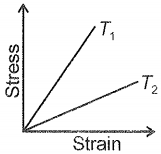
1.
2.
3.
4.







